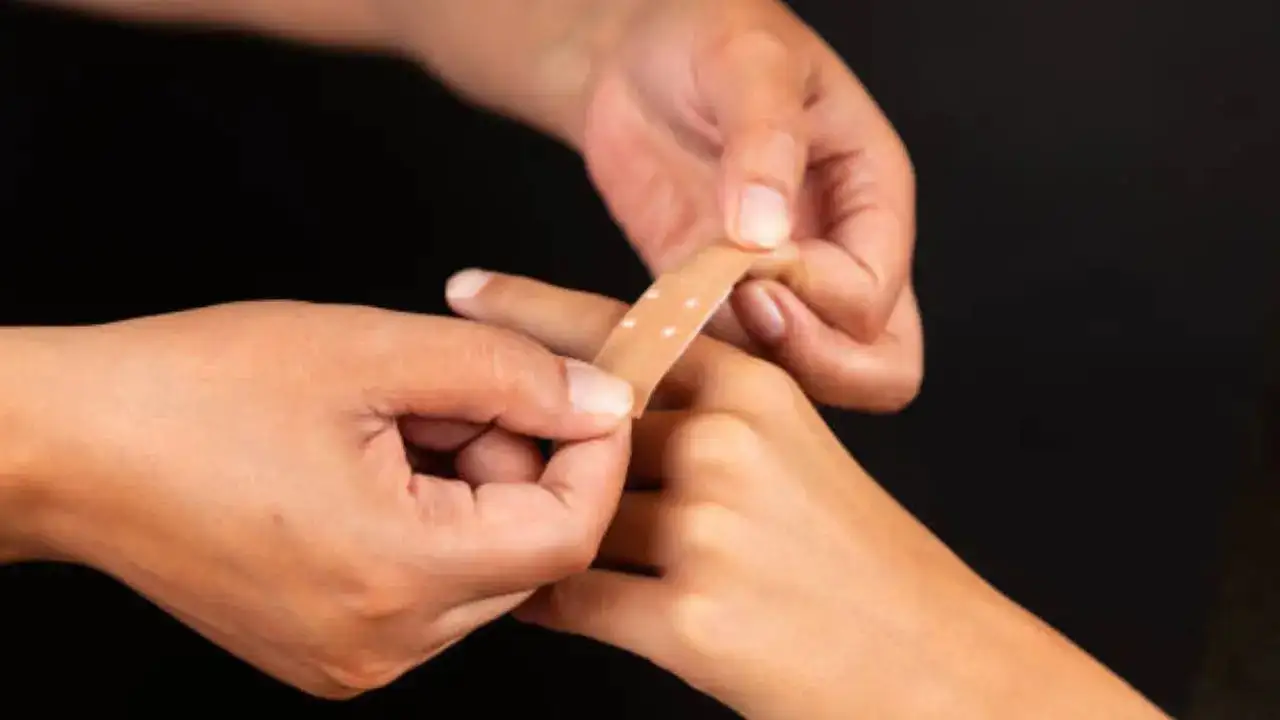
If you leave the wound uncovered, even tiny cuts can get infected and the smallest of activities cause swelling
Whenever you are looking for your wound to heal faster, there are a few things you must never do—for instance, never wait for it to dry out, says a doctor. According to Dr Zoe Williams, a television medic, letting an injury be open is the biggest myth in wound care.
According to Dr Zoe, if you leave it uncovered, even tiny cuts can get infected, and the smallest of activities, like it getting wet due to showering or swimming, can lead to inflammation and swelling on the skin. This will not only impair wound closure but also lead to pathogens like bacteria and germs entering your body—causing infection.
Studies say a majority of people think that letting an injury breathe naturally is the best way for it to heal.
But Dr. Zoe said leaving a graze to air increases the likelihood of infection and instead recovers quickly if it is in a moist, clean environment, which also helps reduce scarring. Signs of haemorrhage include continuous bleeding that doesn’t respond to direct pressure. You may have an infection if the wound shows:
- An increase in drainage
-
Thick green, yellow, or brown pus
- Pus with a foul odour
Other signs of infection include:
- A fever of over 100.4°F (38°C) for more than four hours
- A tender lump in your groin or armpit
- A wound that does not heal
Your doctor will drain or debride the wound and often prescribe an antibiotic if a bacterial infection develops. In serious cases, you may need surgery to remove infected tissue and sometimes the surrounding tissue as well.
“Even small or seemingly insignificant wounds benefit from being covered, but of course, it’s also important to clean a graze beforehand,” Dr Zoe told The Sun. “Protecting a wound with a dressing can be supported by using a healing ointment or using a hydrocolloid plaster which allows the cut to maintain a moist environment and offer benefits including improved pain relief and longer wear,” she added.
How to effectively treat injuries?
More severe wound infections require prompt medical attention, particularly those with other symptoms such as fever, feeling unwell, or discharge and skin streaks from the wound.
Doctors can treat bacterial infections with antibiotics. However, to fully treat the infection and prevent the bacteria from becoming resistant to the drug, a person must complete the course of antibiotics. Some wounds may even require further treatment in addition to cleaning with the help of specific wound cleansing solutions, wound dressings, or procedures to remove infected or dead tissue.
People with animal bites or wounds from dirty or rusty objects may be at risk of tetanus and need to get a tetanus shot.
